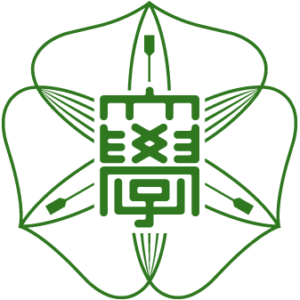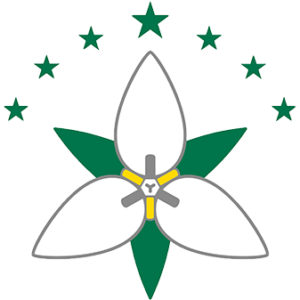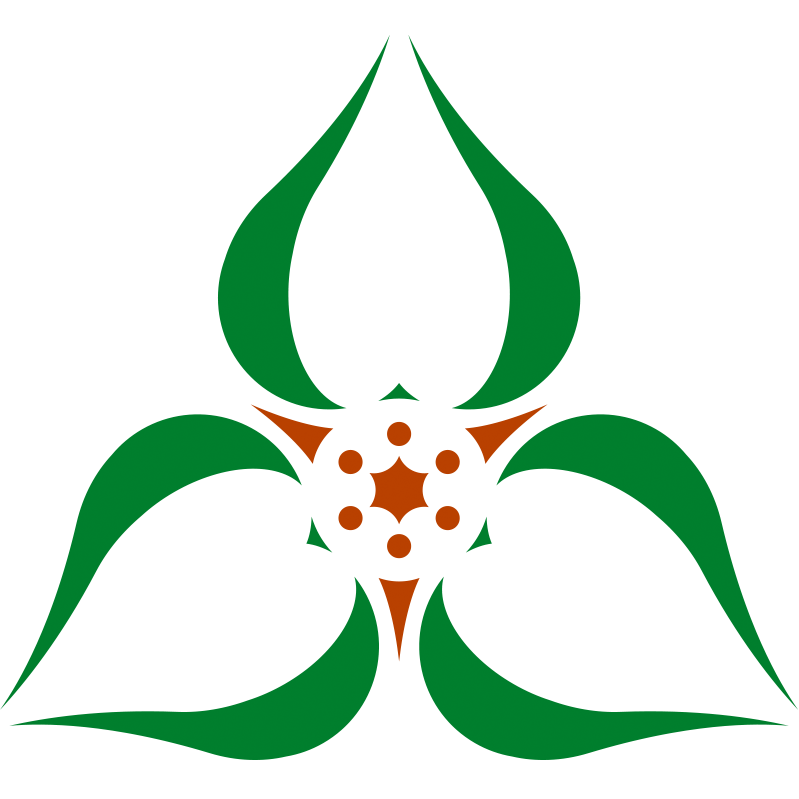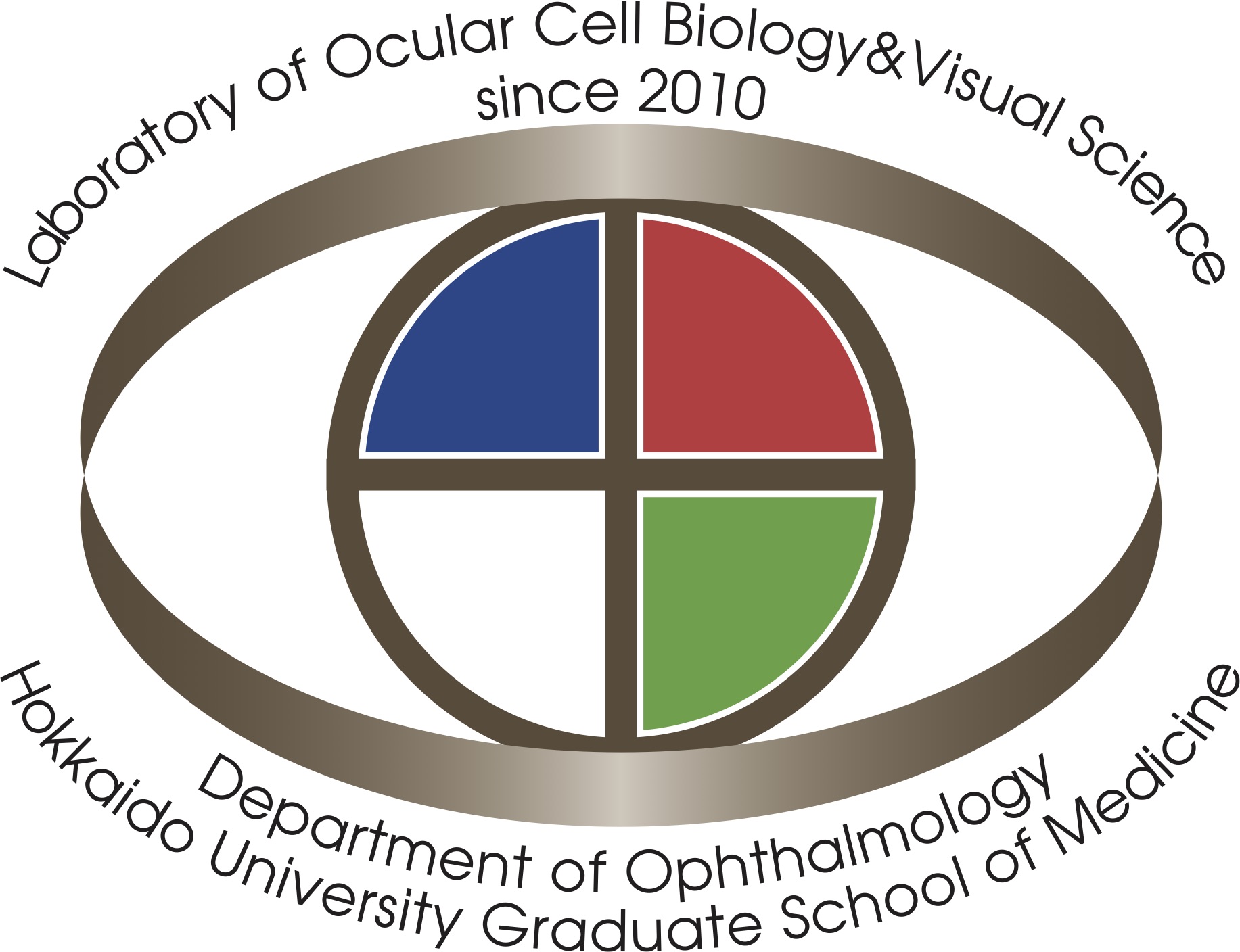
2023年4月より研究主任を拝命いたしました村田美幸です。2009年10月より北大眼科でお世話になり、石田 晋教授、野田 航介先生、神田 敦弘先生のもとで、眼細胞生物学視覚科学研究室(Laboratory of Ocular Cell Biology & Visual Science)の立ち上げと運営に携わってまいりました。三人の先生達も村田も全員田んぼの田が付くので、「田植え会」という名前で新しい研究室のことをあれこれ相談した時の高揚感をよく覚えています。研究室のロゴ(図1)もこの時に原型が作られました。モチーフの一つは「田」です。ず っと頼もしい先生達の下についてのんびりとしておりましたので、研究主任になるようにと言われた時は責任の重さに押し潰されそうな気持ちになりました。そんな私を石田教授や野田先生は今もしっかり見守ってくださっていて、研究委員の先生達を始め周囲の先生達も何かと温かい気遣いをしてくださり、何とか歩んでいる毎日です。
研究主任はこのように頼りないですが、その分研究室のスタッフや研究に励んでいる大学院生の先生は、自主自立の精神が強くしっかりとした方が揃っています。
研究スタッフの中で一番経験の長い吉田 志帆さんは、2011年に研究室に加わってくれました。帯広畜産大学の出身で、学生時代から牛などの大動物を扱ってきた動物実験のスペシャリストです。2022年はご縁があって北海道医療大学の平岡 美紀先生の研究室でマウスやラットの眼の解析技術に磨きをかけ、現在は研究室のin vivo実験を八面六臂の働きで支えてくれています。2022年11月から在籍の堀尾 瑠奈さんは、北大医学部保健学科の出身で臨床検査技師としての勤務経験があり、北大の腫瘍病理学講座で修士号を取得しています。研究を通して患者さんに貢献したいという志を持って、研究室の仲間に加わってくれました。現在は、安藤 亮先生、田中 孝幸先生が研究されている抗網膜抗体のウエスタンブロッティングによる解析や、ELISAでの測定系の構築を担当しています。彼らはその他様々な研究室の業務に加えそれぞれ個人の研究テーマも持っており、論文執筆や学会発表にも取り組んでいます。
大学院最上級生の水門先生は、研究と臨床、アニュレポ編集長に加え、先日お子さんも出産されて、それぞれの役割を真面目に誠実に頑張っています。病理検体の免疫染色による解析が得意で、後輩への指導もしてくれています。大学院2年目の横井先生は体力的にも大変なin vivo実験を手を抜かずコツコツ取り組み、周りの人達の実験も積極的に助けてくれます。先日はわかもと先進眼科医療研究会において見事BRONZ AWARDを受賞されました。大学院1年目の新海先生は、入学直後にも関わらず先輩から引き継いだ論文のrevise実験を精力的に進め、IOVSアクセプトに貢献しています。同じく大学院1年目の西村先生は、未経験の動物実験にも臆することなく取り組み、実験手技が緻密で正確です。皆さん課題に真摯に取り組んでおり、今後の研究の発展がとても楽しみです。
現在の研究スタッフや院生の先生達がしっかりと力をつけているのは、石田教授やこれまでの研究主任の先生達、研究指導の先生達が築き上げてきた研究室の体制の成果だと思います。それをしっかりと引き継ぎ、一人一人の研究者が充実した研究生活を送り、眼科全体の研究がさらに発展していくように、微力ながら精一杯力を尽くしたいと思います。今後とも、ご指導ご鞭撻の程、何卒よろしくお願い申し上げます。
My name is Miyuki Murata and I have been working as a research chief since April 2023. I have been working at the Department of Ophthalmology, Hokkaido University since October 2009, and have been involved in the establishment and operation of the Laboratory of Ocular Cell Biology & Visual Science with Professor Susumu Ishida, Dr. Kosuke Noda and Dr. Atsuhiro Kanda. I remem-ber well the feeling of excitement when we discussed this and that about the new laboratory. The laboratory’s logo (図 1) was also made at this time. I had always been taking it easy under the supervision of reliable professors, so when I was asked to become a research chief, I felt as if I would be crushed by the weight of responsibility. Professor Ishida and Professor Noda are still watch-ing over me, and the research committee members and other doctors around me have been very warm and attentive to me.
I am thus inexperienced, but for this reason, the laboratory staff and graduate students are all strong and solid, with a strong spirit of independence and self-reliance.
Shiho Yoshida, the most experienced member of our labora-tory staff, joined the lab in 2011. She graduated from Obihiro University of Agriculture and Veterinary Medicine and is a special-ist in animal experiments, having worked with cattle and other large animals since she was a university student. She is now sup-porting the lab’s in vivo experiments with her very active work. Runa Horio, who has been with us since November 2022, gradu-ated from the Department of Health Sciences, Faculty of Medicine, Hokkaido University, and has worked as a clinical laboratory tech-nician, and holds a master’s degree from the Department of Cancer Pathology at Hokkaido University. She joined us in the lab with the will to contribute to patients through her research. In addition to their various other laboratory duties, they also have their own individual research projects.
Dr. Suimon, the most senior graduate student, in addition to research, clinical work, and serving as editor-in-chief of theAnnual Report, recently gave birth to a child and is working dili-gently and faithfully in each of her roles. She is good at analyzing pathology specimens by immunostaining, and she also provides guidance to her junior colleagues. Dr. Yokoi, who is in his second year of graduate school, has been working tirelessly on in vivo experiments, which are physically demanding, and actively helps those around him with their experiments. Recently, he was awarded the BRONZ AWARD at the Wakamoto Conference of Advanced Medicine of Ophthalmology. Dr. Shinkai, who is in his first year of graduate school, has been vigorously conducting revise experiments on papers he inherited from his seniors and contributed to the IOVS acceptance, even though he has just entered the graduate school. Dr. Nishimura, also in her first year of graduate school, is not afraid to tackle animal experiments she has no experience with, and her experimental techniques are pre-cise and accurate. Everyone is working diligently on their research projects, and I am looking forward to the development of their research in the future.
I believe that the current laboratory staff and graduate stu-dents are firmly building up their strength as a result of the laboratory system that Professor Ishida, the past principal investi-gators, and research supervisors have built up. I would like to take over this system and do my best to ensure that each and every researcher can lead a fulfilling research life and that research in the department of ophthalmology as a whole will further develop. I look forward to your continued guidance and encouragement.
図1 眼細胞生物学視覚科学研究室のロゴ | 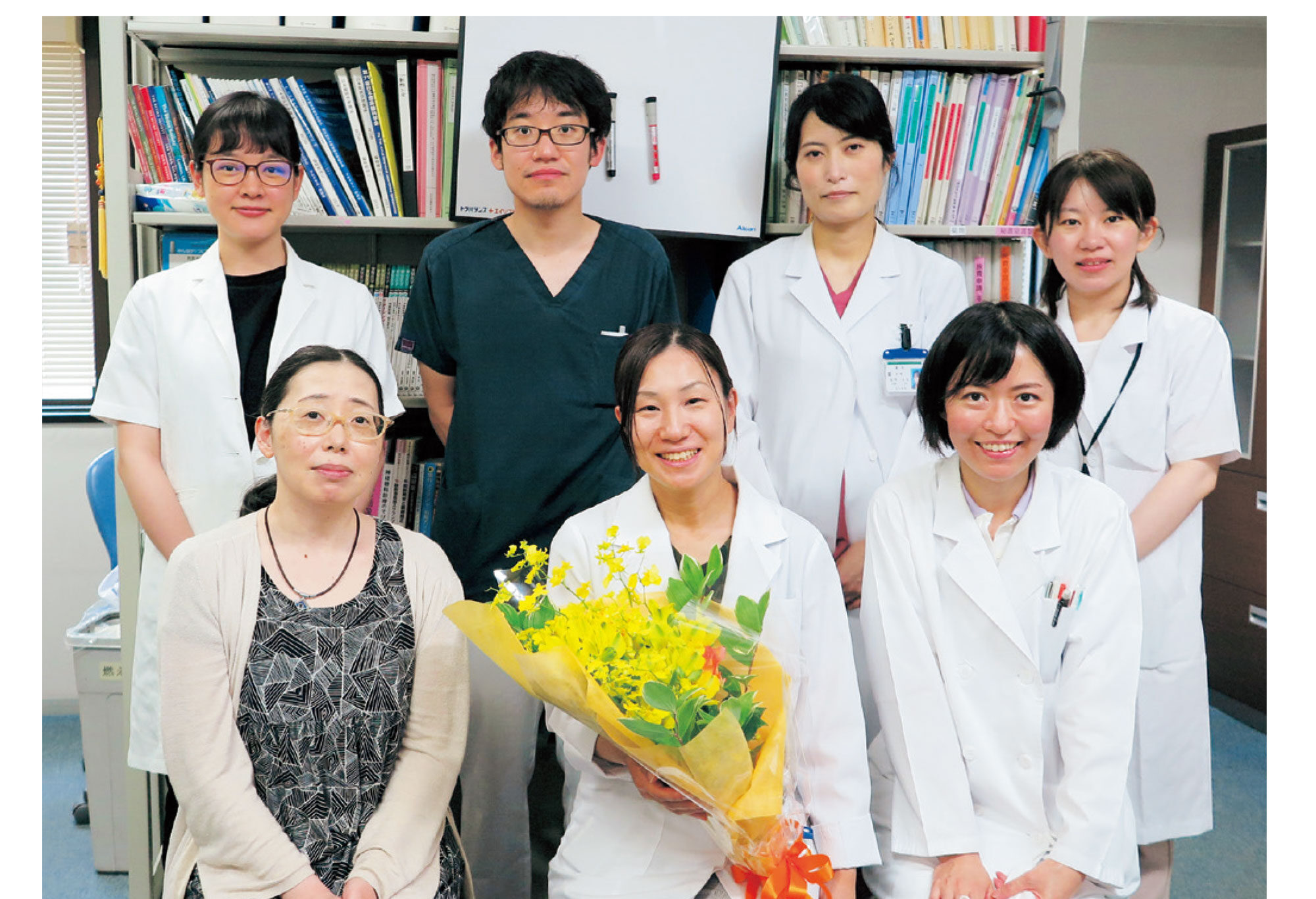 |
| 鈴木 佳代先生の大学院卒業祝い | |

